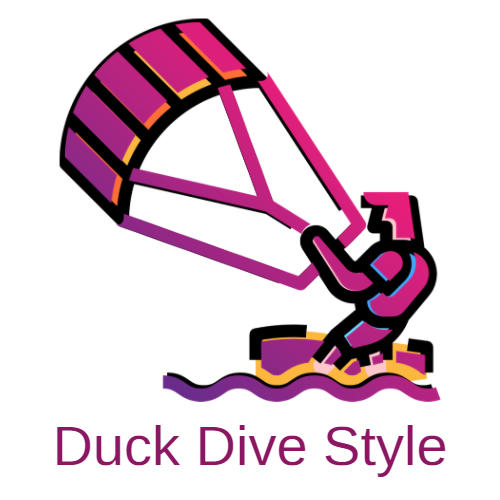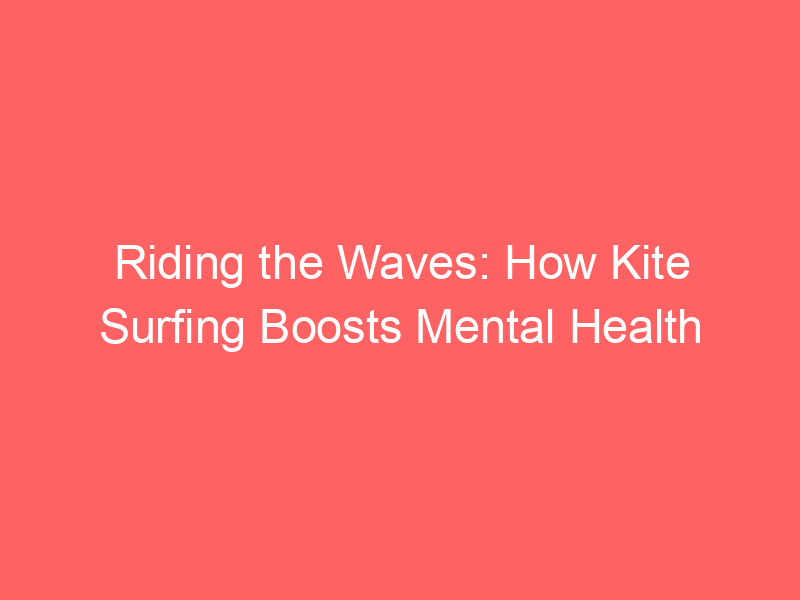
Introduction: The Importance of Surf Coaches and Mentors
Surfing, a sport that combines the thrill of the ocean with the challenge of balance, is a popular pastime for many. However, to truly excel in this sport, the guidance of surf coaches and mentors is crucial. In this blog post, we will explore the role of these professionals and their impact on a surfer’s skill development.
- Understanding the Role of Surf Coaches and Mentors
- The Impact of Professional Surf Training on a Surfer’s Skill Development
Surf coaches and mentors play a pivotal role in the journey of every surfer, regardless of their skill level. They provide the necessary guidance, training, and support that surfers need to improve their skills and reach their full potential. Coaches focus on the technical aspects of surfing, such as perfecting maneuvers, improving balance, and enhancing wave selection. On the other hand, mentors offer advice on mental preparation, career guidance, and personal development, which are equally important in the world of surfing. Wikipedia provides a comprehensive overview of the role of coaches and mentors in surfing.
Professional surf training can significantly enhance a surfer’s skill development. With the help of a coach or mentor, surfers can learn to read waves better, improve their timing, and execute maneuvers more effectively. This professional guidance can also help surfers avoid common mistakes, reducing the risk of injury and boosting their confidence in the water. According to a study, surfers who received professional training showed a 60% improvement in their performance compared to those who did not. This clearly highlights the importance of surf coaches and mentors in the sport of surfing.
Surf Coaching: The Key to Mastering the Waves
Surfing is an exhilarating sport that requires a combination of physical strength, balance, and understanding of the ocean. But, mastering the waves is not an easy task. This is where surf coaching comes into play. Let’s dive into what surf coaching is and the role of surf coaches in professional surf training.
What is Surf Coaching?
Surf coaching is a specialized form of training designed to help surfers of all levels improve their skills and performance in the water. It involves teaching techniques, strategies, and safety measures related to surfing.
- Definition and overview of surf coaching: Surf coaching is a process where an experienced surfer, known as a surf coach, provides guidance and instruction to a surfer. This coaching can be for beginners who are just getting their feet wet, or for advanced surfers who want to refine their techniques and take their surfing to the next level. Surf coaches use a variety of teaching methods, including on-the-beach instruction, in-water demonstrations, and video analysis.
- The role of surf coaches in professional surf training: In professional surf training, surf coaches play a pivotal role. They not only teach surfing techniques but also help surfers understand the dynamics of the ocean, including wave patterns and tides. They provide feedback, help surfers set and achieve goals, and prepare them for competitions. In essence, a surf coach is a mentor who helps surfers unlock their full potential and master the art of riding the waves.
Surf coaching is an essential part of becoming a successful surfer. It provides the knowledge and skills necessary to navigate the waves safely and effectively. So, whether you’re a beginner looking to learn the basics or a seasoned surfer aiming to perfect your technique, surf coaching can be a game-changer.
Responsibilities of a Surfing Coach
Surfing coaches play a crucial role in the development and safety of surfers. They shoulder a variety of responsibilities that go beyond the surfboard. Let’s delve into the key duties of a surfing coach:
- Teaching Surfing Techniques and Strategies
- Providing Safety Instructions and Ensuring Adherence
- Monitoring and Assessing Surfing Skill Development
A surfing coach’s primary responsibility is to teach surfing techniques and strategies. They guide surfers on how to balance on the board, paddle efficiently, and catch waves. They also impart knowledge on wave reading and timing, which are essential for a successful surf. Coaches often use various surfing maneuvers to enhance a surfer’s skill set.
Safety is paramount in surfing. Coaches provide comprehensive safety instructions to prevent accidents and injuries. They ensure surfers understand the importance of warming up, using the right gear, and respecting the ocean’s power. They also enforce adherence to these safety protocols, creating a secure environment for learning and enjoyment.
Surfing coaches closely monitor the progress of their students. They assess the development of surfing skills, providing constructive feedback to help surfers improve. Coaches may use video analysis or one-on-one sessions to evaluate a surfer’s technique and style. This constant monitoring and assessment ensure surfers continue to grow and reach their full potential.
In conclusion, a surfing coach’s responsibilities are multifaceted, encompassing teaching, safety enforcement, and skill assessment. Their expertise and guidance are invaluable in helping surfers master the waves and enjoy this exhilarating sport safely.
Benefits of Surf Coaching
Surf coaching is more than just teaching someone how to ride a wave. It’s about instilling a deep understanding of the ocean, improving techniques, and preparing surfers for competition. Here are some of the key benefits of surf coaching:
- Improved surfing skills and techniques
- Increased safety awareness
- Enhanced competitive readiness
Surf coaching provides a structured learning environment where surfers can hone their skills and techniques. With the guidance of a coach, surfers can learn how to read waves, perfect their timing, and improve their board control. This leads to a more enjoyable surfing experience and a higher level of performance.
Surfing can be a dangerous sport if not approached with the right knowledge and respect for the ocean. A surf coach teaches surfers about ocean safety, including understanding wave patterns, rip currents, and other potential hazards. This knowledge can help surfers stay safe and enjoy their time in the water.
For those who aspire to compete in surfing, a coach is essential. Surf coaches can help surfers understand competition rules, develop strategies, and improve their mental toughness. This preparation can give surfers a competitive edge and increase their chances of success in competitions.
In conclusion, surf coaching offers a range of benefits that can enhance a surfer’s skills, safety awareness, and competitive readiness. Whether you’re a beginner or an experienced surfer looking to take your skills to the next level, surf coaching can provide the guidance and support you need to achieve your goals.
Surf Mentors: Guiding Surfers Beyond the Waves
Surfing is not just a sport, but a lifestyle that requires dedication, practice, and guidance. This is where surf mentors come into play. They are the guiding lights that help surfers navigate the challenging world of surfing.
Understanding the Role of Surf Mentors
Let’s delve deeper into understanding the role of surf mentors and how they complement surf coaches.
- Definition and Importance of Surf Mentors
- How Surf Mentors Complement the Role of Surf Coaches
A surf mentor is an experienced surfer who guides and supports less experienced surfers. They share their knowledge, skills, and insights to help their mentees improve their surfing abilities. But their role goes beyond just technical guidance. They also provide emotional support, motivation, and help surfers understand the surfing culture and etiquette.
Having a surf mentor is crucial for any surfer, regardless of their skill level. They provide personalized advice and guidance that can significantly improve a surfer’s performance. They also help surfers build confidence, overcome fears, and deal with the challenges that come with surfing.
While surf coaches focus on improving a surfer’s technical skills, surf mentors play a more holistic role. They not only guide surfers in mastering the waves but also help them understand the deeper aspects of surfing, such as respect for the ocean, the importance of safety, and the spirit of the surfing community.
Surf mentors often have a personal relationship with their mentees, which allows them to provide more personalized and in-depth guidance. They can help surfers set and achieve their surfing goals, deal with setbacks, and stay motivated. In essence, while surf coaches teach surfers how to surf, surf mentors guide them on how to be a surfer.
Surfing Mentorship Programs
Surfing mentorship programs are designed to help surfers of all levels improve their skills and reach their full potential. These programs pair surfers with experienced mentors who provide personalized guidance and support. Let’s take a closer look at these programs and how to choose the right one for you.
- Overview of Different Surfing Mentorship Programs
- Beginner Programs: These programs are perfect for those who are new to surfing. Mentors in these programs focus on teaching the basics of surfing, including safety measures, wave reading, and basic surfing techniques. An example of such a program is the Surfing Basics Mentorship Program.
- Intermediate Programs: These programs are for surfers who have mastered the basics and want to improve their skills. Mentors in these programs focus on advanced techniques, wave selection, and competition strategies. The Competitive Surfing Mentorship Program is a popular choice for intermediate surfers.
- Professional Programs: These programs are for surfers who aspire to compete at the highest level. Mentors in these programs are usually professional surfers or coaches who provide guidance on advanced techniques, competition preparation, and career management. The Professional Surfing Mentorship Program is a top choice for aspiring professional surfers.
- How to Choose the Right Mentorship Program
- Your Skill Level: Choose a program that matches your current skill level. If you’re a beginner, look for a program that focuses on teaching the basics. If you’re an intermediate surfer, choose a program that can help you improve your techniques. If you’re aspiring to become a professional surfer, opt for a program that offers advanced training and career guidance.
- Your Goals: Your goals should guide your choice of a mentorship program. If you want to compete, choose a program that offers competition preparation. If you want to surf for fun and relaxation, a program that emphasizes enjoyment and safety might be a better fit.
- Mentor’s Experience: The mentor’s experience and credentials are crucial. Look for mentors who have a solid track record in surfing and coaching. They should be able to provide practical advice and insights based on their own experiences.
There are several types of surfing mentorship programs available, each with its unique focus and benefits. Here are a few examples:
Choosing the right surfing mentorship program depends on your skill level, goals, and personal preferences. Here are a few factors to consider:
In conclusion, surfing mentorship programs offer valuable guidance and support to surfers of all levels. By considering your skill level, goals, and the mentor’s experience, you can find the perfect program to help you master the waves and reach your full potential.
Benefits of Surf Mentors
Having a surf mentor can greatly enhance your surfing experience. Let’s delve into the key benefits that these mentors bring to the table.
- Personalized Guidance and Advice
- Emotional Support and Motivation
- Networking Opportunities within the Surfing Community
A surf mentor provides personalized guidance and advice tailored to your specific needs and aspirations. They understand your strengths and weaknesses, and can offer advice on how to improve your technique, select the right equipment, and navigate different types of waves. This one-on-one attention can significantly accelerate your learning process. For instance, a study by the University of California, San Diego showed that surfers who received personalized guidance from mentors improved their skills twice as fast as those who learned on their own.
Surfing can be a challenging and sometimes frustrating sport. A surf mentor provides emotional support, helping you stay motivated even when the waves are tough. They celebrate your successes, help you learn from your failures, and inspire you to keep pushing your limits. Their belief in your abilities can be a powerful motivator, encouraging you to strive for excellence.
Surf mentors often have extensive connections within the surfing community. They can introduce you to other surfers, professionals, and enthusiasts, opening up opportunities for networking and collaboration. This can lead to new friendships, partnerships, and even career opportunities in the world of surfing. A case in point is the story of Kelly Slater, a world champion surfer who attributes much of his success to the networking opportunities provided by his early mentors.
In conclusion, a surf mentor can be a game-changer in your surfing journey, providing personalized advice, emotional support, and valuable networking opportunities. So, if you’re serious about surfing, consider finding a mentor to guide you on your journey.
Case Studies: Success Stories from Surf Coaching and Mentorship
Let’s dive into some real-life examples of how surf coaching and mentorship have made a significant impact on surfers at different levels.
- Case study 1: A professional surfer’s journey with their coach and mentor
- Case study 2: The impact of a mentorship program on a beginner surfer
Meet John, a professional surfer who has been riding the waves for over a decade. John attributes much of his success to his coach and mentor, Mike. Mike, a former professional surfer himself, has been coaching John since he was a teenager.
John’s journey with Mike began with mastering the basics of surfing. Mike’s coaching helped John improve his balance, timing, and wave selection. But Mike’s role as a mentor was equally important. He guided John through the ups and downs of a professional surfing career, offering advice on everything from maintaining physical fitness to handling competition stress.
Today, John is a top-ranked professional surfer, and he credits Mike’s coaching and mentorship for his success. “Without Mike’s guidance, I wouldn’t be where I am today,” says John. Learn more about professional surfing here.
Next, let’s look at Sarah, a beginner surfer who joined a mentorship program. Sarah was new to surfing and struggled with the basics. That’s when she decided to join a local surf mentorship program.
Through the program, Sarah was paired with Lisa, an experienced surfer. Lisa helped Sarah improve her surfing skills, but more importantly, she provided the encouragement and support Sarah needed to keep going, even when the waves were tough.
After a year in the mentorship program, Sarah’s surfing skills have improved significantly. She’s now able to ride bigger waves and has even entered her first surfing competition. “Joining the mentorship program was the best decision I made. Lisa’s guidance has been invaluable,” says Sarah. Learn more about beginner surfing here.
Conclusion: The Lasting Impact of Surf Coaches and Mentors
As we reach the end of our journey exploring the world of surf coaching and mentorship, let’s take a moment to reflect on the key insights we’ve gathered. The impact of surf coaches and mentors extends far beyond the waves, shaping not just the skills of surfers, but their character and approach to life as well.
- Recap of the importance of surf coaches and mentors: Surf coaches and mentors play a crucial role in the development of a surfer. They provide the technical knowledge needed to master the waves, from understanding wave patterns to perfecting surfing techniques. But their influence goes beyond the technical. They instill discipline, resilience, and respect for the ocean, shaping surfers into responsible and confident individuals. The success stories we’ve shared highlight the transformative power of effective coaching and mentorship in surfing.
- Final thoughts on the role of coaching and mentorship in surfing: The journey of a surfer is one of continuous learning and growth. Having a coach or mentor to guide this journey can make a significant difference. They provide the support, encouragement, and guidance needed to overcome challenges and reach new heights. As we’ve seen, the impact of a good coach or mentor can be life-changing, paving the way for success both on and off the waves.
In conclusion, the role of surf coaches and mentors cannot be overstated. They are the guiding lights that illuminate the path for surfers, helping them navigate the challenges of the sport and reach their full potential. As we continue to celebrate and support the work of these dedicated individuals, we can look forward to a future of surfing that is not only more skilled, but also more mindful and respectful of the ocean and its waves.








